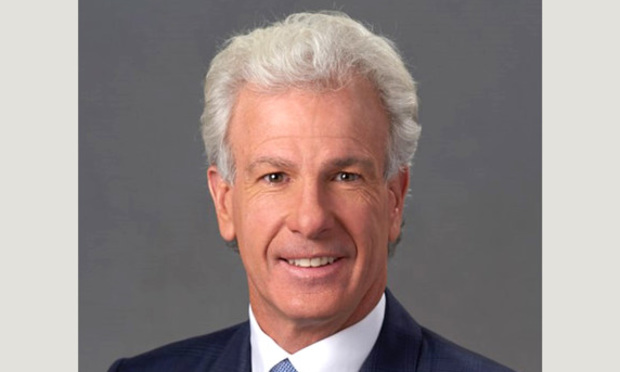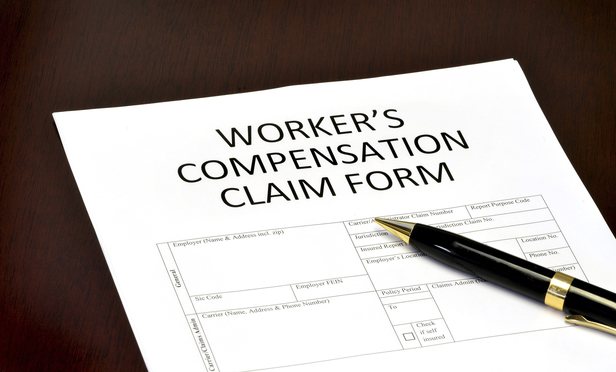Samuel H Pond

July 18, 2019 | The Legal Intelligencer
Uber and Lyft Drivers Strike: What's at Stake for Injured Gig Workers?A few months ago, Uber and Lyft drivers around the world went on a 24-hour strike to protest unfair pay, the lack of transparency in the ride-hailing giants' fare systems, poor working conditions and the lack of benefits.
By Samuel H. Pond
8 minute read

May 23, 2019 | The Legal Intelligencer
Occupational Disease Victims Neglected by Workers' Comp SystemMore than a century after the workers' compensation system was implemented, it is becoming more evident that those suffering from job-related diseases are often left out, with no path to justice.
By Samuel H. Pond
6 minute read

May 16, 2019 | The Legal Intelligencer
The 'Great Equalizer'—How the Contingent Fee Provides Access to JusticeUnder a contingent fee agreement, a client in a civil matter does not need to pay an attorney unless the case is successful. Often, attorneys will also front all litigation costs. Thus, the client does not have to pay anything out of their pocket. Thus, all fees and costs are paid out of the recovery.
By Samuel H. Pond
3 minute read

July 20, 2017 | The Legal Intelligencer
The 'Protz' Redemption: 2 Huge Breaks for Injured WorkersIn everyone's favorite weekend afternoon movie on TNT, "The Shawshank Redemption," Morgan Freeman's character, Red, describes Tim Robbins' character Andy's love of geology: "Geology is the study of pressure and time. That's all it takes really. Pressure and time."
By Samuel H. Pond and Susan Nanes
13 minute read

May 25, 2017 | The Legal Intelligencer
The Grand Bargain Becomes the Grand BetrayalOver 100 years ago, the Pennsylvania Workers' Compensation Act was introduced to the commonwealth. It was called the "grand bargain." The grand bargain resulted in the loss of the constitutional right of an injured worker to sue their employer in exchange for the certainty and guarantee of workers' compensation benefits consisting of a weekly check and payment of medical treatment.
By Samuel H. Pond and Maureen "Morty" Cassidy
8 minute read

March 30, 2017 | The Legal Intelligencer
Workers' Comp 'Reforms' Don't Stand Up to ScrutinyThere's a classical Roman maxim: "There are some cures worse than the disease." Of course, we know what it means: There's an actual problem, but the proposed solution will either fail to solve the problem, create more problems or kill the patient. And we must consider the source of the proposed miracle cure. Pennsylvania Rep. Ryan Mackenzie, whose district includes parts of Bucks and Lehigh counties, is developing expertise in proposing legislative "reforms" to our workers' compensation legal system that are Trojan horses. They purport to solve a genuine crisis, but if enacted, would not help and, worse, will actually harm and create new difficulties for injured workers across Pennsylvania.
By Samuel H. Pond and Susan Nanes
17 minute read

March 27, 2016 | The Legal Intelligencer
Taking a Stand Against Workers' Comp Reform BillIt is March, and our thoughts turn to the Madness. Exploding offenses. Swarming defenses. Gut check time. They came to play and answered the bell.
By Susan Nanes and Samuel H. Pond
13 minute read

January 30, 2016 | The Legal Intelligencer
Insurers' Inhumane Actions Should Not Be ToleratedThere is a gripping scene in the movie "The Rainmaker," based on John Grisham's book of the same title. A former claims representative, played by Virginia Madsen, testifies in court, before a jury, about what happened with a claim made by the mother of Donny Ray Black, a young man suffering from leukemia. A bone marrow transplant would most likely have saved Donny Ray's life, but the family's health insurer denied the claim eight times before the family sought out a young and idealistic lawyer played by Matt Damon.
By Susan Nanes and Samuel H. Pond
6 minute read

November 24, 2015 | The Legal Intelligencer
The Evolving, Subjective Nature of Mental and Emotional InjuriesFor many of us, work can be physically draining, intellectually taxing and just plain drudgery. For others, work can become a traumatizing environment where workers can be hurt in numerous ways that do not result in physical injuries. Over 100 years ago, with the passage of the Workers' Compensation Act, workers conceded the power to sue employers in tort for injuries that occurred on the job in favor of a systematic approach that would compensate them only for medical care and a wage payment without a cost-of-living adjustment. At that time, immediate worries included the horrors of coal mines and factories, and other physical dangers of the Industrial Revolution workplace.
By Susan Nanes and Samuel H. Pond
7 minute read

November 23, 2015 | The Legal Intelligencer
The Evolving, Subjective Nature of Mental and Emotional InjuriesFor many of us, work can be physically draining, intellectually taxing and just plain drudgery. For others, work can become a traumatizing environment where workers can be hurt in numerous ways that do not result in physical injuries. Over 100 years ago, with the passage of the Workers' Compensation Act, workers conceded the power to sue employers in tort for injuries that occurred on the job in favor of a systematic approach that would compensate them only for medical care and a wage payment without a cost-of-living adjustment. At that time, immediate worries included the horrors of coal mines and factories, and other physical dangers of the Industrial Revolution workplace.
By Susan Nanes and Samuel H. Pond
7 minute read
Trending Stories
- 1Call for Nominations: Elite Trial Lawyers 2025
- 2Senate Judiciary Dems Release Report on Supreme Court Ethics
- 3Senate Confirms Last 2 of Biden's California Judicial Nominees
- 4Morrison & Foerster Doles Out Year-End and Special Bonuses, Raises Base Compensation for Associates
- 5Tom Girardi to Surrender to Federal Authorities on Jan. 7
More from ALM
- Scan In Progress: Litigators Leverage AI to Screen Prospective Jurors 1 minute read
- Legal Speak at General Counsel Conference East 2024: Match Group's Katie Dugan & Herrick's Carol Goodman 1 minute read
- Legal Speak at General Counsel Conference East 2024: Eric Wall, Executive VP, Syllo 1 minute read



